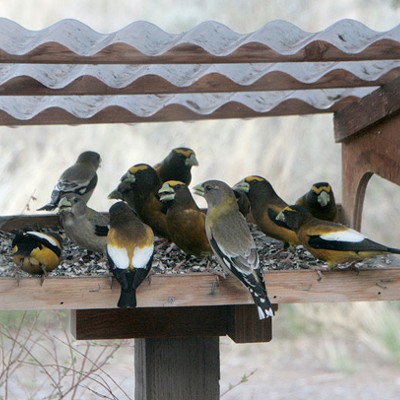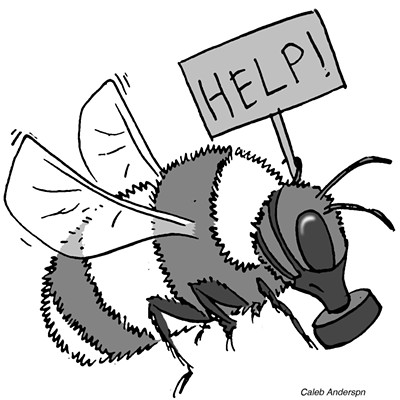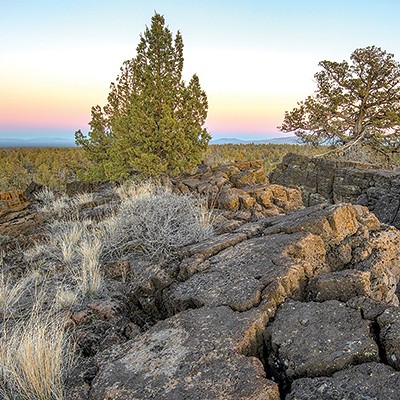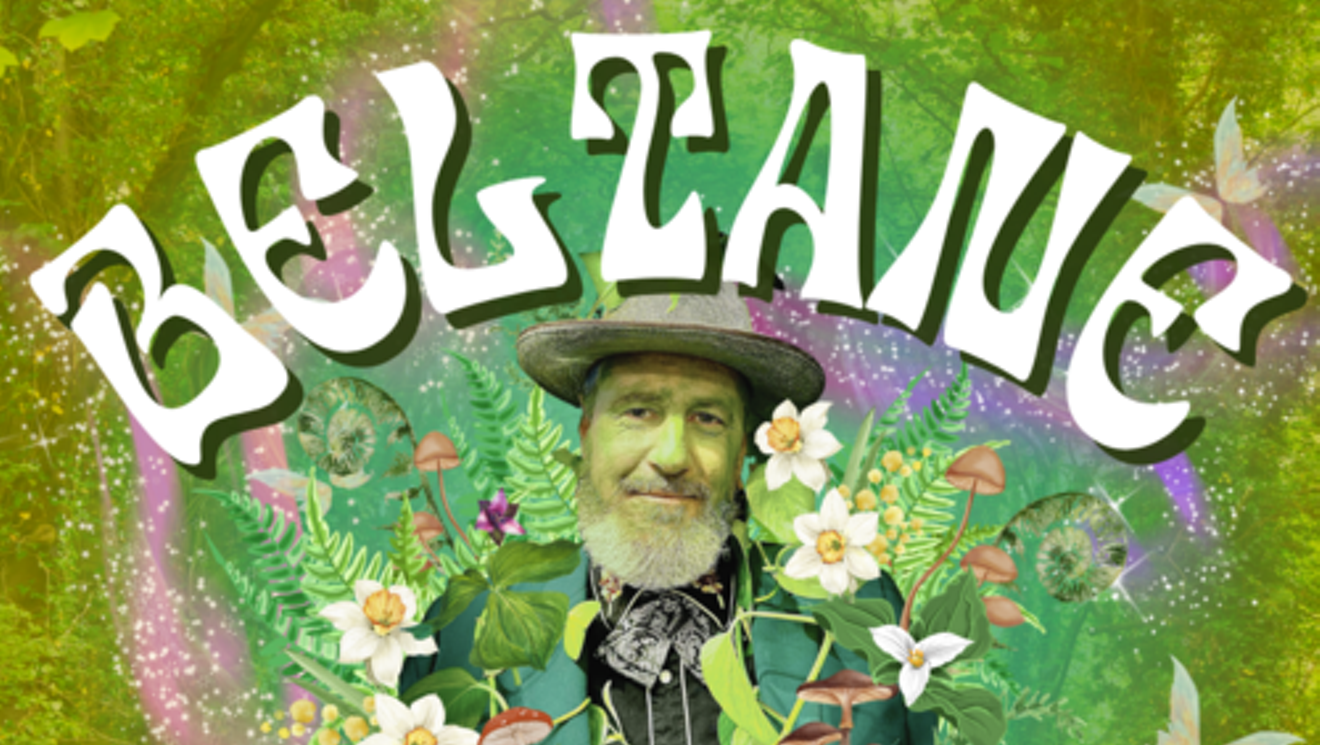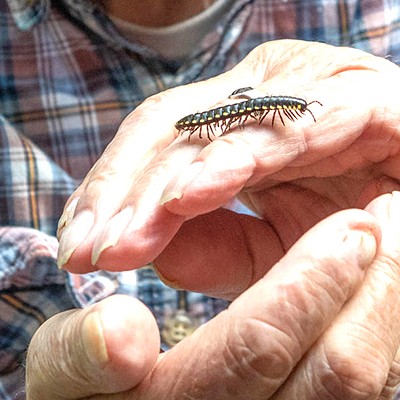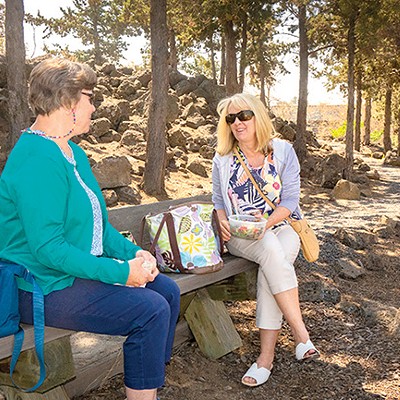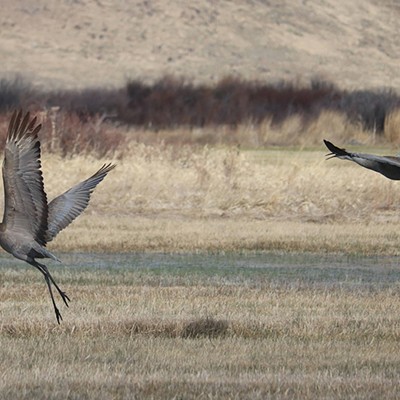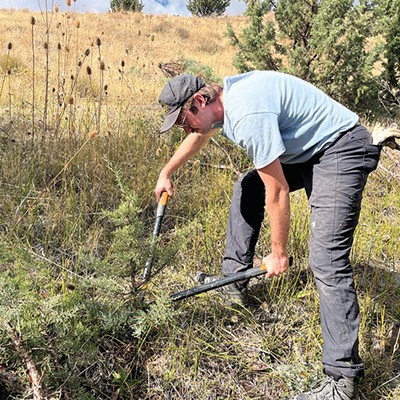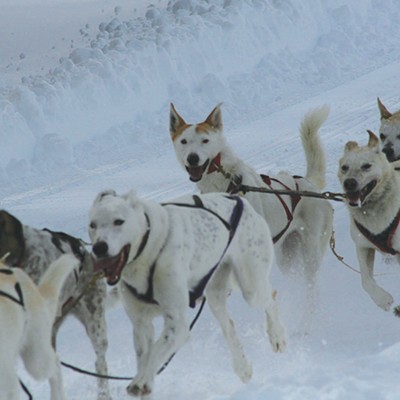The links between insects and a healthy environment are so vital to life as we know it, they should be taught in kindergarten so that everyone learns the facts at an early age. You can thank an insect pollinator for one out of every three mouthfuls of food you eat—which is what makes spraying chemicals to kill insects in an apple orchard so deadly. Without insects to pollinate fruit crops you don't get healthy fruit to eat.
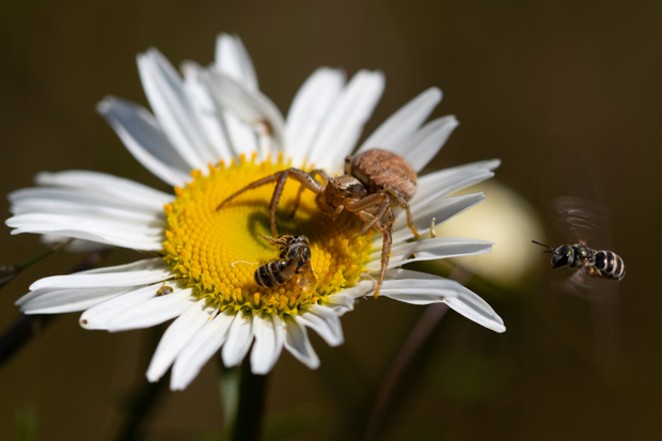
Sure, those black flies, the biters in the "No-see-'em" group, can drive you nuts while you're fly fishing, but your grilled salmon dinner would have been impossible without them and the other aquatic invertebrates that young fish eat.
Nearly all of our native songbirds raise their young on insects, even quail and other seed-eaters. The swallows that nest in those clever little wooden boxes we put up to help them keep their numbers up are completely dependent on insects to stay alive—many of which we spray deadly chemicals to kill, such as mosquitoes.
Unless you've seen the films regarding the food of grizzly bears, this is going to be tough to believe, but without tiny cutworm moths to eat, bears wouldn't make it. It's the fat in the insects' tissues that keeps the bears alive as they sleep though the winter.
In Yellowstone and Glacier National Parks, grizzly bears consume up to 40,000 cutworm moths a day. However, the elements driving climate change have been raising the temperature of the air surrounding the mountains to the point where the plants that keep the moths going have died in the lower elevations. Without those moths it will eventually be, "So long, grizzly bears," along with the various interrelated food chains within their ecosystem.
This is a scientific fact: With well over 1 million known species, insects and other invertebrates eclipse all other forms of life on Earth. Insects and their partners are nearly irreplaceable to the reproduction of most flowering plants — including many fruits, vegetables, and nuts, in addition to insects and their allies, which are food for birds, fish, and other animals. They filter water and keep our rivers and streams pristine, and they clean up waste from plants and animals.
Insects are indisputably the most important creatures on Earth, but they and the other invertebrates are in trouble. One recent review published by the science of entomology estimated that, if losses continue at current rates, over 40% of the world's insect species may go extinct over the next few decades. This is not only here in North America, but in Eastern Europe as well.
We cannot allow that to happen! I know this sounds like Hollywood stuff, but it's an indisputable scientific fact: If you like to eat potatoes, eggplant, tomatoes and other veggies, you must save the insects that pollinate them. There's no time to wait. We need to act now.
Large, connected natural lands such as national forests, Bureau of Land Management lands and freshwater systems act as reservoirs for insects—but they're not enough. We must also address conservation in farmlands and urban areas. Please, before you grab up the chemical spray to remove some kind of plant or creepy-crawly that annoys you, stop and think how long that stuff will be in the soil and what will happen to our insect life in the long run — especially when it reaches the water table.
Before you grab up the chemical spray to remove some kind of plant or creepy-crawly that annoys you, stop and think how long that stuff will be in the soil and what will happen to our insect life in the long run — especially when it reaches the water table.
tweet this
Approximately 40% of global land use is devoted to agriculture and 55% of people live in towns and cities. Roadsides, parks and gardens are providing important habitat for insects and other invertebrates.
The fiasco involving the Oregon Department of Transportation and the death of hundreds of trees along Hwy. 20 outside Sisters is an environmental warning of what can happen when chemicals are applied to the land without understanding the circumstance of such actions. Herbicides can be deadly if applied without caution. Just the loss of the insects that depend on the plants destroyed by herbicides can cause irreversible harm for life on earth.
Please, Good People, listen to the promptings of the man who studied the earth and its life systems his entire life, Aldo Leopold. His "Land Ethic" brings to life the fact that humans have a responsibility to be aware and understand all life around us. Local libraries stock Leopold's book, "A Sand County Almanac"—please read it and act responsibly to ensure a sense of balance in our Earth.
In that light, please be kind to our world of invertebrates. Even with all the years we've been living with them, we still have a long way to go in understanding their role in the welfare of man and the Earth.
If you go to the Xerces Society website (xerces.org) a science-based nonprofit organization that protects wildlife through the conservation of invertebrates and their habitats, you will be starting down the trail of Aldo Leopold's work and understanding your role in helping the Earth survive man's errors.

